
Winning design in an international architectural competition
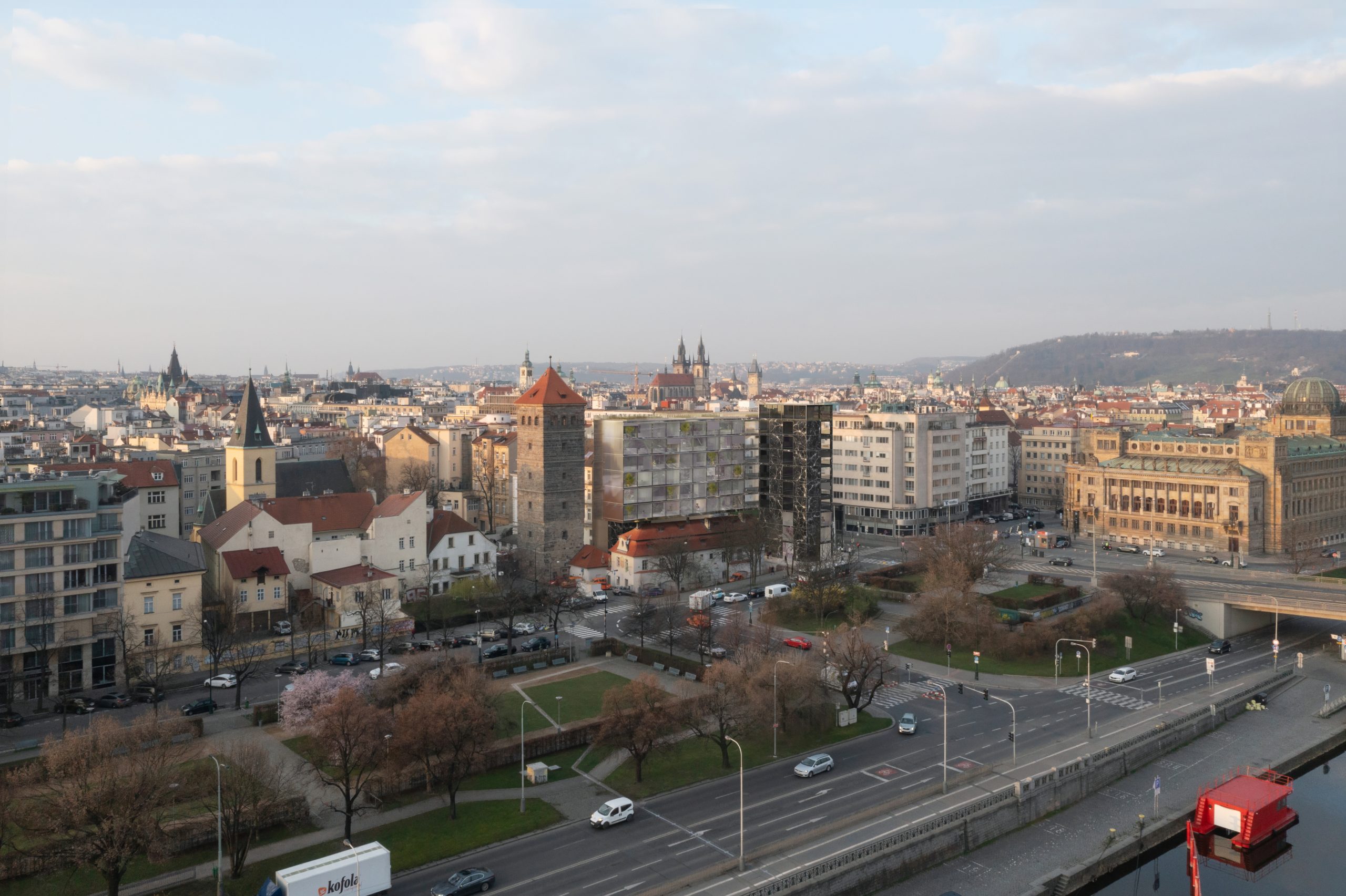


About the project
In an international architectural competition involving more than 80 studios from all over the world, an independent jury selected the design by the Czech-French duo Peer collective and Studio Muoto from the top six finalists. Their unique design of a floating house can finally give the Revoluční Street back its natural front, having been absent since World War II, and bring back cultural and social life to this exposed part of Prague.
Prague citizens will have to wait to see how the story of a Prague waterfront will continue. A broad debate about the winning design will now be launched with District and City representatives, heritage experts, and neighbours. The common goal of all the parties is to restore the original function of this part of the city and to create a new symbol representing Prague as a modern city.
The winning proposal involves much more than a unique apartment house. It also includes a new publicly accessible passage to the Novomlýnská Water Tower, bringing life into the long-forgotten corner of the city and following the tradition of Prague passages, which are also present in the Revoluční Street.
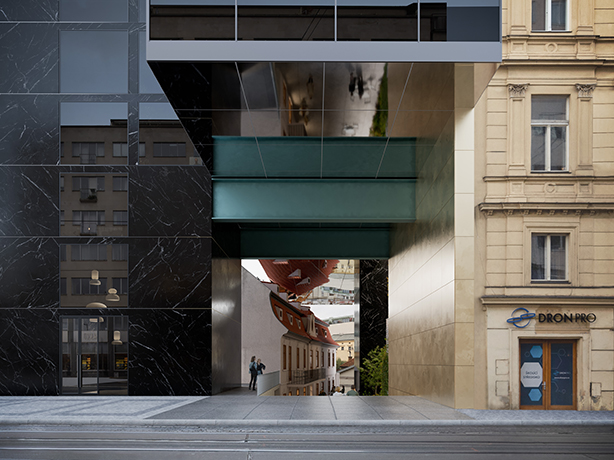
Revoluční 30 does not cover the owner’s entire land, which can still serve a public function. In addition to the passage, the proposal also comes up with the idea to repurpose the Baroque house No. 1244 from the existing facility of the Pražské služby company to a cultural or educational centre. This is also to be discussed with the City of Prague, which owns the Baroque house. The investor is offering cooperation, trying to find a common path towards realization with the city. With its large potential for social and cultural occasions, the corner of Revoluční and Lannova can become a welcome place for Prague citizens and tourists alike. The lively public space and airy corner area are among the main attributes of the Revoluční 30 design proposal.
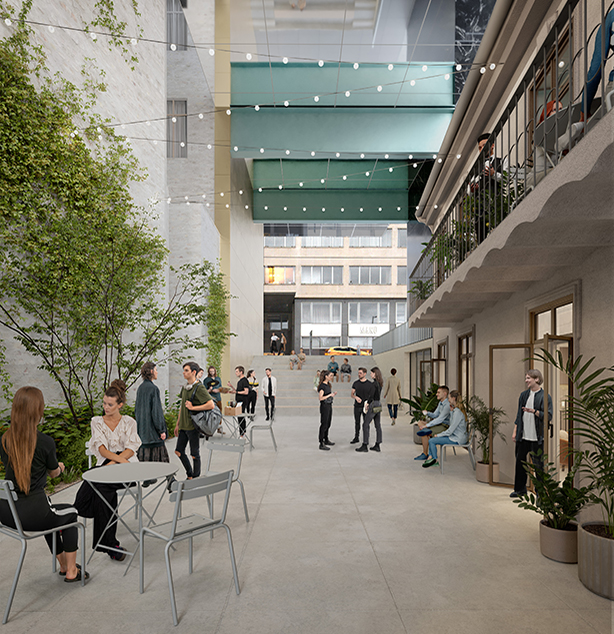
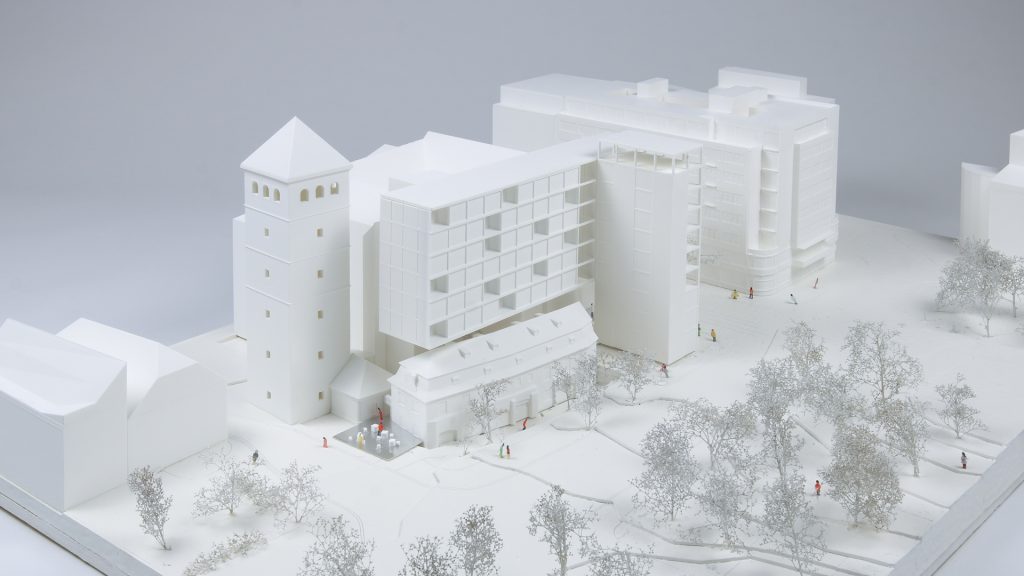
Model of the winning design

View from above on the passage (without the model)
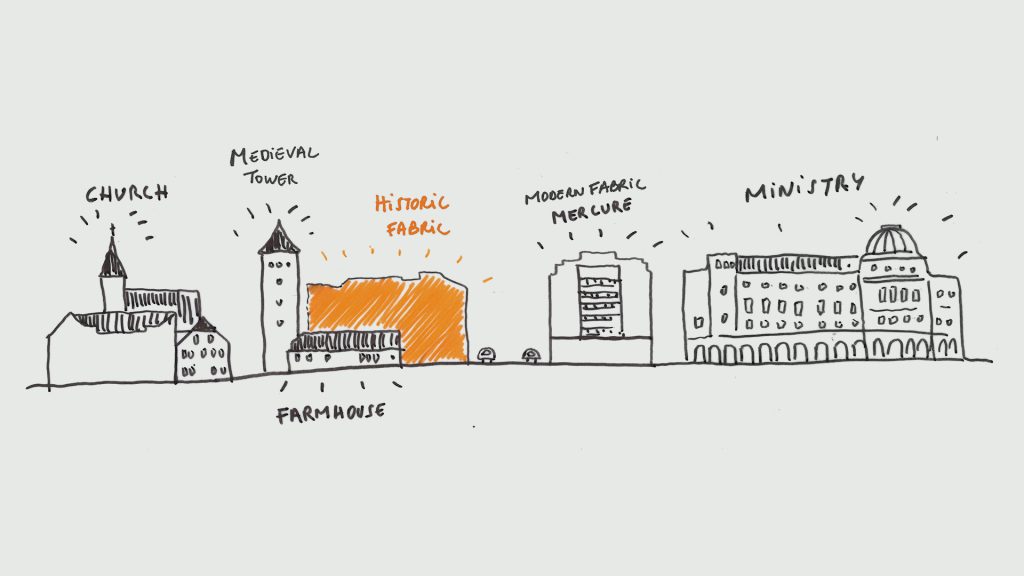
Illustration by the architects
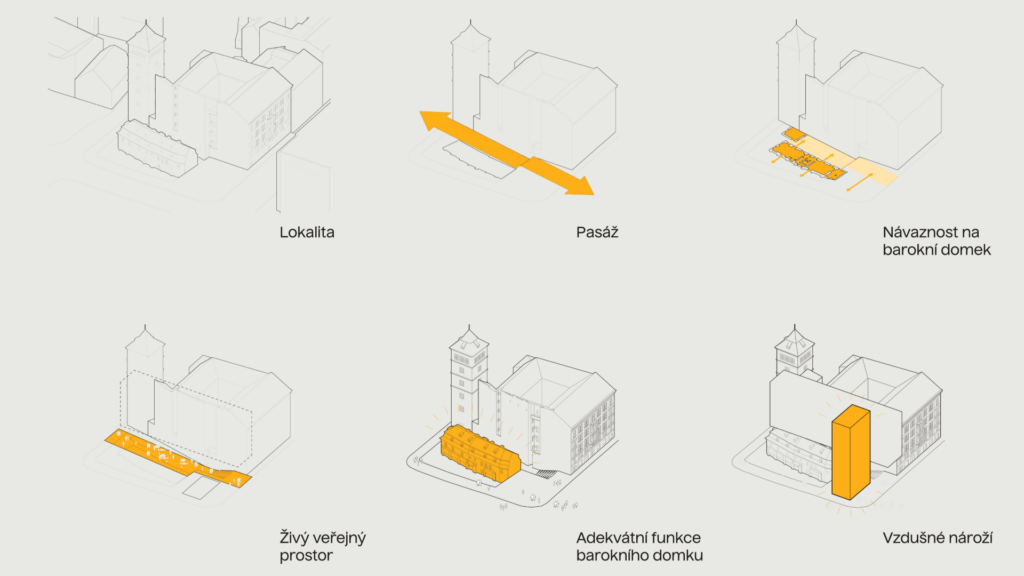
Diagram of the new passage and the lively corner
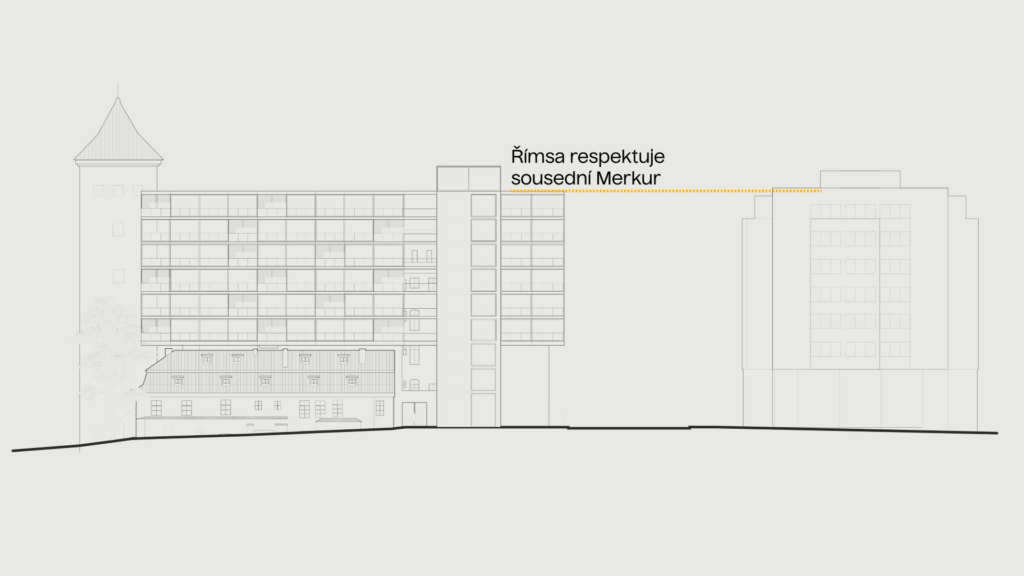
Height limit in cross section
The completion or renovation of the Revoluční and Lannova corner area was already considered after World War II. At the site of Revoluční 30, there used to be a bath house since the days of King Wenceslaus IV, followed by the neo-Gothic Elisabeth’s Bath in the mid-19th century. However, the building was torn down together with a bridge in 1940. As a result, this central area of Prague lost its entrance icon, giving way to house No. 1502, which had never been meant to serve this function. Already since the 1960s, there have been several proposals to remove it and build a prominent corner building. However, the first step towards the realization of these plans was only taken in March 2022, with a discussion of urban planning experts, architects, and the investor resulting in demolition and creating space for a new project.
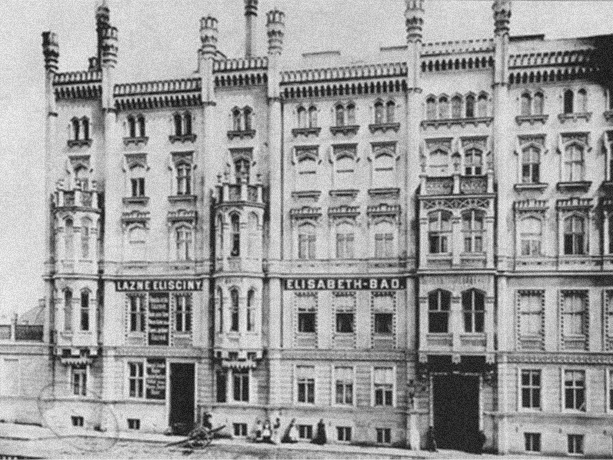
The Revoluční 30 design presented comes up with a solution that is in line with the long-term conceptual study of the Prague Institute of Planning and Development (IPR Prague) called City Wall Promenade. This system of streets from Národní třída through Příkopy and Náměstí republiky Square all the way to Revoluční basically follows the course of the Old Town walls (hence the name City Wall Promenade). The aim of the study co-authored by Ondřej Císler, a member of the competition jury, is to connect the above-mentioned locations, enhance their quality, and improve the conditions for pedestrians, cyclists, and public transport. More on the study.
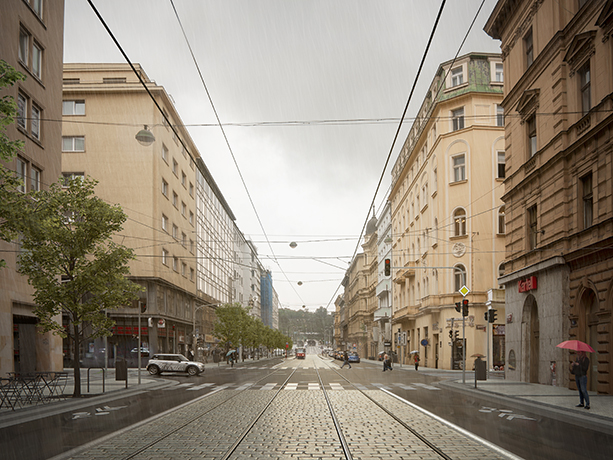
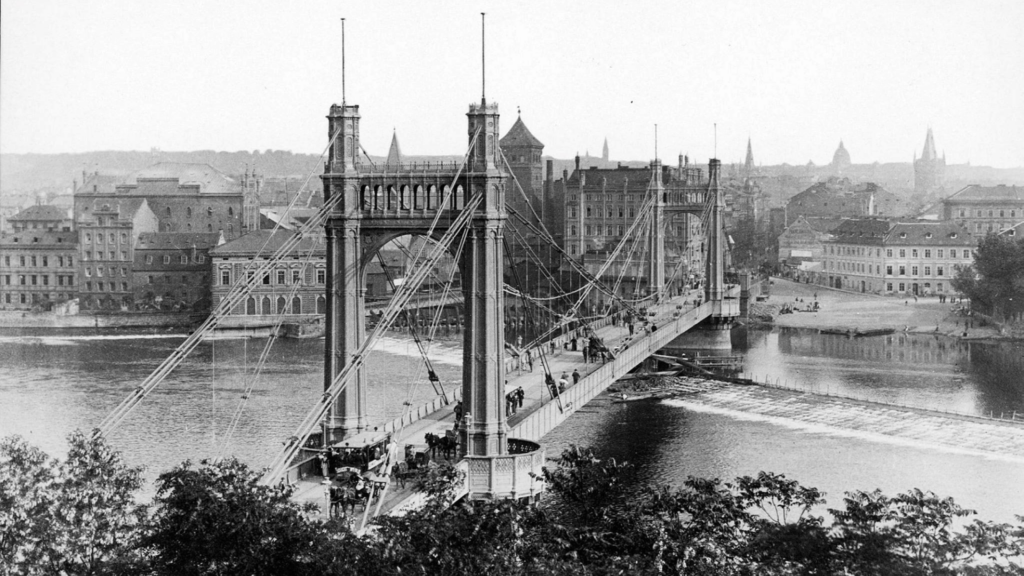
Franz Joseph Bridge
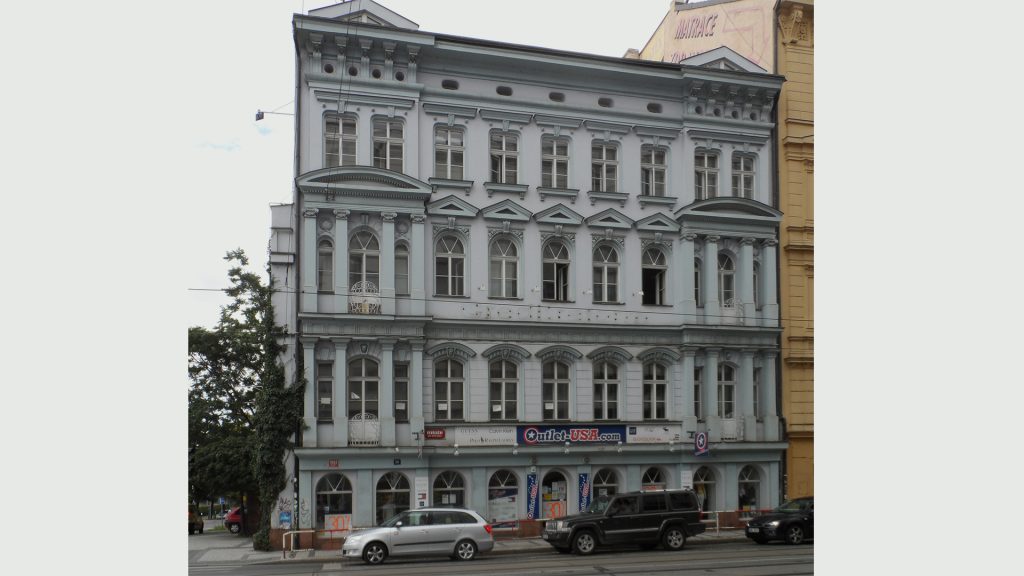
Original house No. 1502
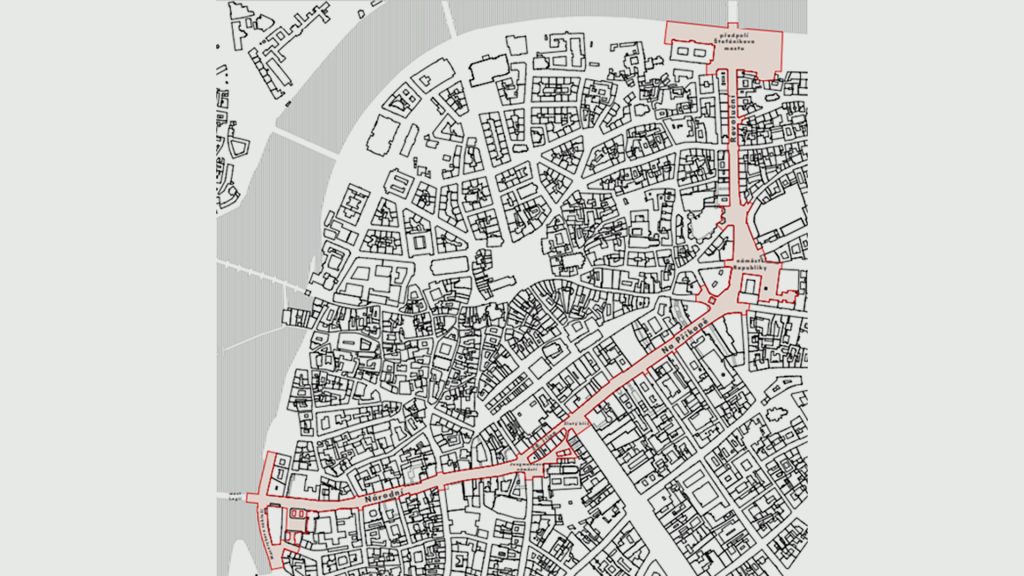
Map of the City Wall Promenade
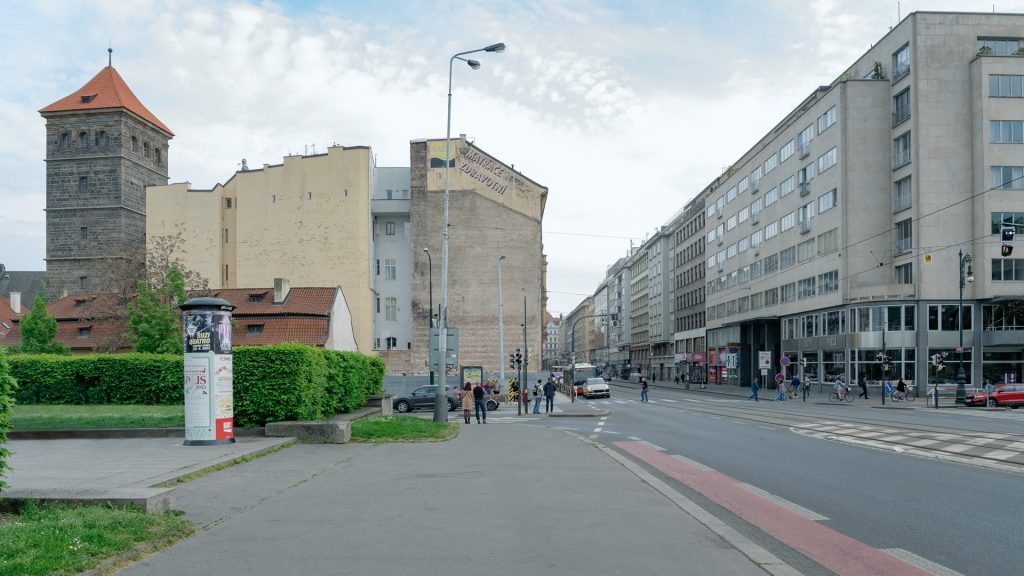
Current situation

Elisabeth’s Bath
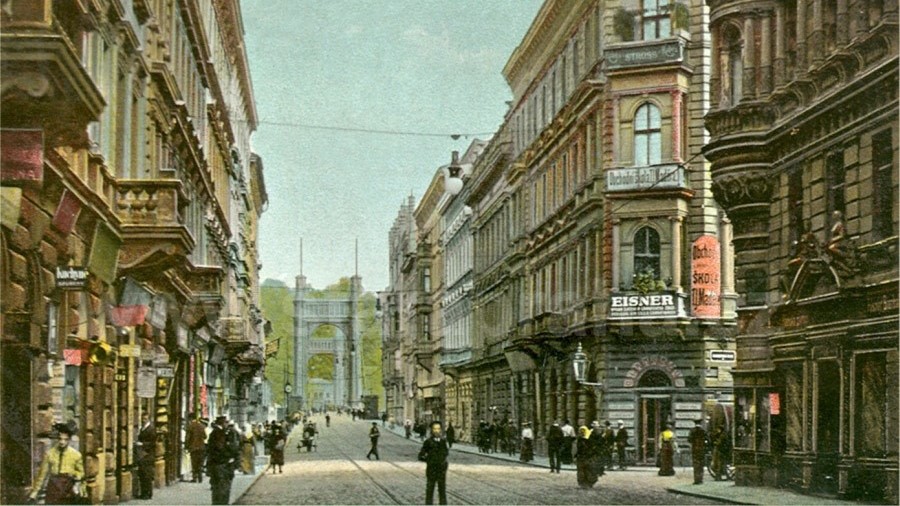
Eliščina (today’s Revoluční) Street
About the competition
“The floating house attracted the attention of the entire jury with its originality and generous passage providing ample possibilities for social events which are so scarce in the area.” Winy Maas, jury chair
Winy Maas, jury chair
More than 80 architectural studios from all over the world entered the open architectural competition in 2023. One of the main reasons for holding the competition organized by MOBA was to involve all stakeholders in all steps of the process. The jury involved expert representatives of the City and of the Prague 1 Municipal District. Winy Maas, a world-renowned Dutch architect from the MVDRV studio and visiting professor at the Faculty of Architecture of the Czech Technical University, was invited to become the jury chair. Strong voices in the discussion included those of Ondřej Císler, the author of the conceptual study City Wall Promenade for IPR Prague, and architect Jana Moravcová.
Out of the 84 applicants, the jury shortlisted six studios or teams presenting their design proposals at the end of 2023. The jury selected as the winner the design by the Czech-French duo Peer and Muoto, embedding an original floating house with a new passage in the context of historical buildings.
Winning design video
Authors
Peer collective is a young architectural studio based in Brno. The cooperation of the architects started during their studies, and it has been very intense since then. PEER believe that architecture is constantly evolving, and it needs to be experimented with and examined for it to really serve people and their lives. For the Revoluční 30 architectural competition, PEER decided to approach colleagues from the French studio MUOTO. The design presented is a product of their common experience, their relationship to the historical context, and original approach respecting the values of the location. The combination of local insight and international experience serves as a basis for a successful realization of the design.
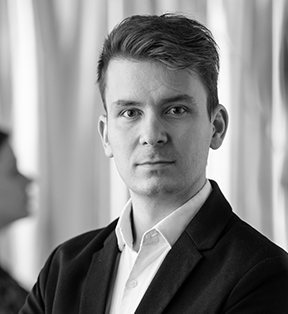
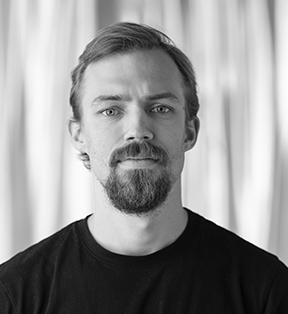
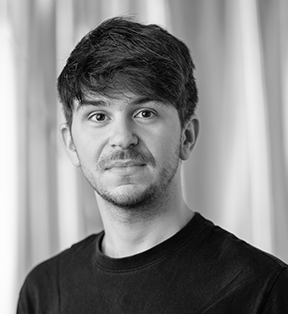
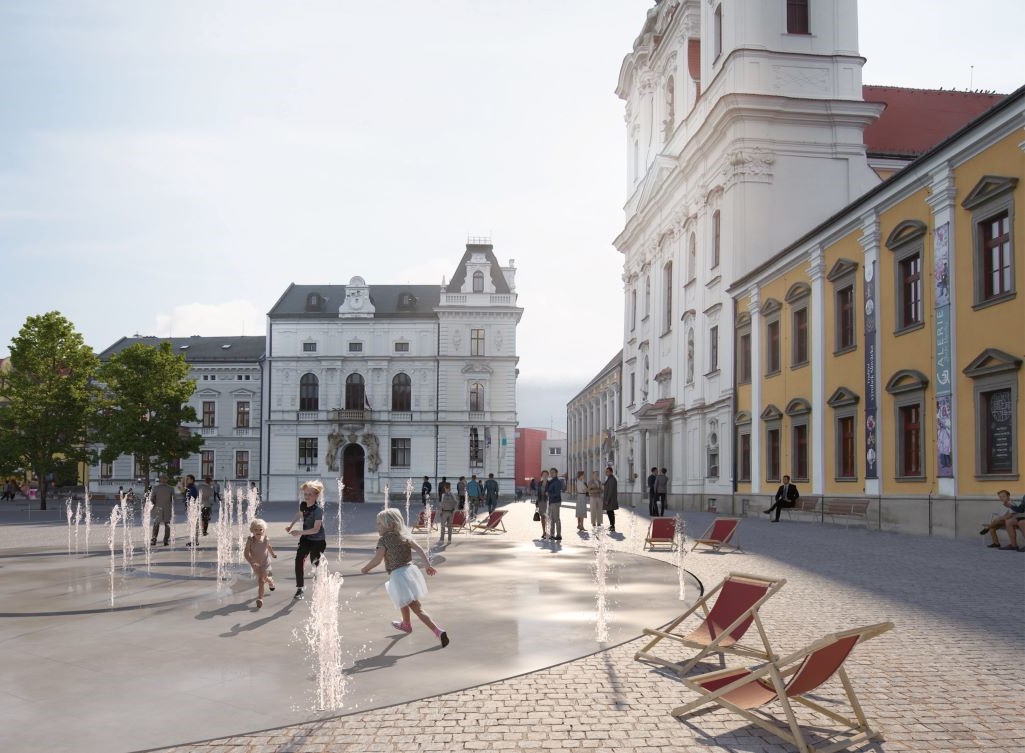
Náměstí (Uherské Hradiště)

NÚKIB (Brno)
Muoto is an architectural studio based in Paris since 2003. Its activities cover the fields of architecture, urban planning, design, teaching, and scientific research. Muoto’s work features minimal structures that can combine different activities, evolve in time, and merge economical and aesthetic issues. Muoto means form in Finnish.
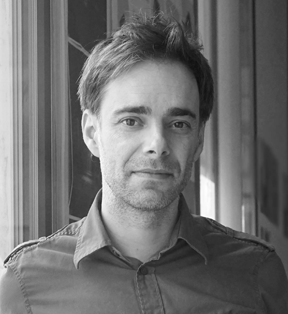
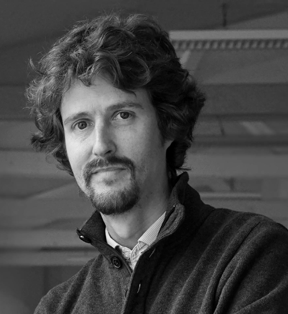
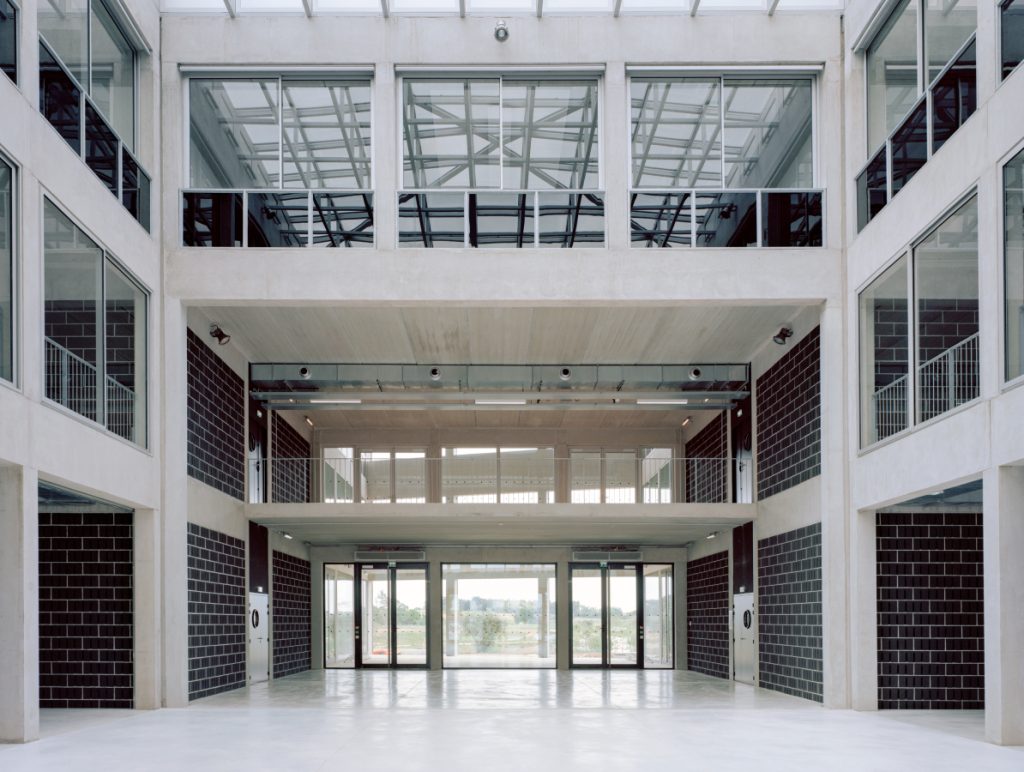
The Innovation Hall (Montpellier)
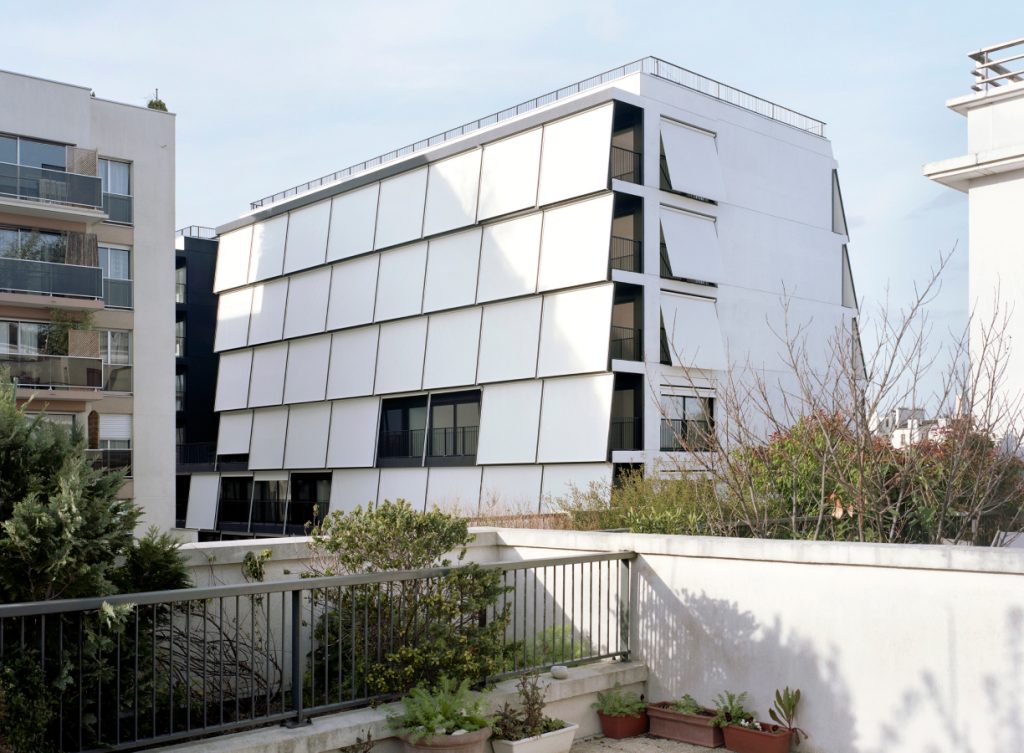
34 Dwellings (Paris)
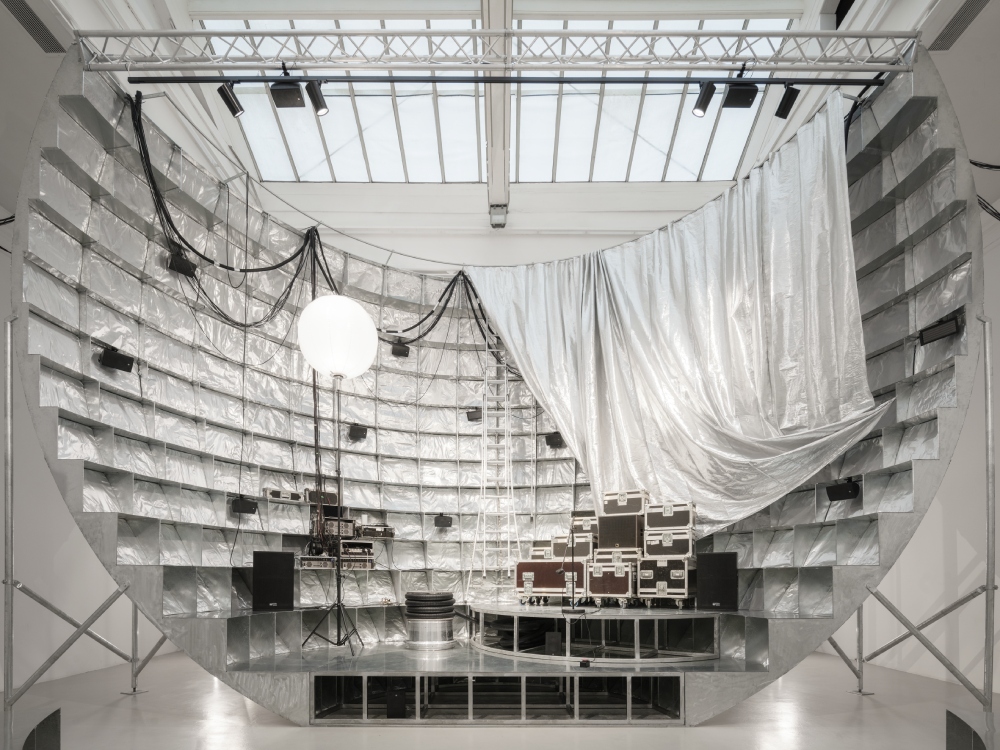
Pavilon Biennale 2023
Investor
RSJ Investments manages a wide portfolio of investments in the Czech Republic and abroad. The controlling shareholder of the Group is Libor Winkler, an entrepreneur, art lover, and one of the greatest philanthropists in the Czech Republic.
RSJ Investments is based on two pillars. One of them involves investments in the construction of residential and office buildings and acquisition of income properties. This portfolio includes for instance the shopping and social centre in Děčín resulting from the revitalization of historical parts of brewery buildings as old as from the 17th century and addition of new, modern architectural elements. Another example is for instance the newly renovated national cultural monument Pradiareň 1900 in Bratislava. In 2024, the investment group completed an extensive reconstruction of the house U Červené lišky on the Prague Old Town Square, giving the building back its authenticity and historical value and opening it to the public.

House U Červené lišky - Prague
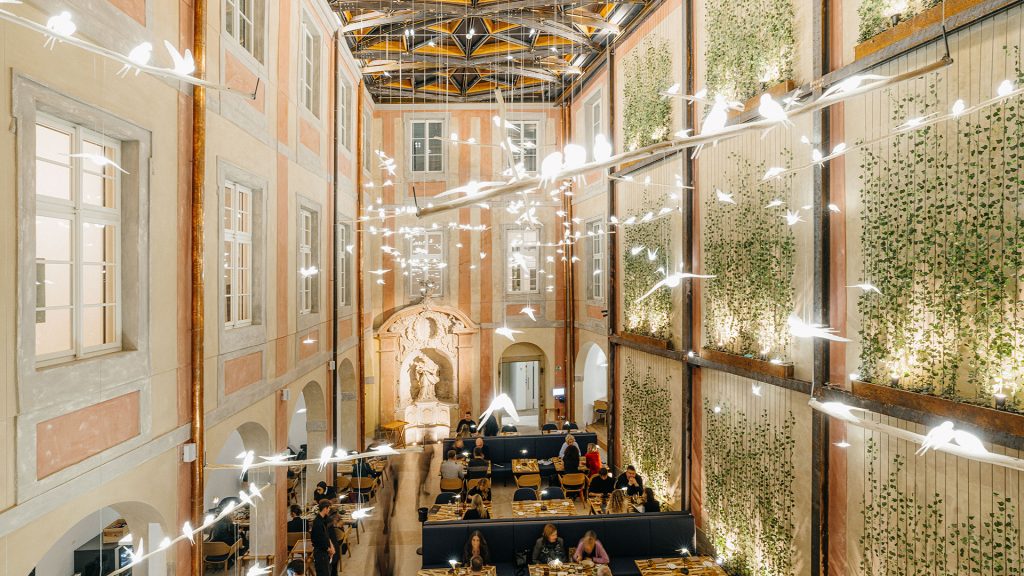
Centrum pivovar - Děčín
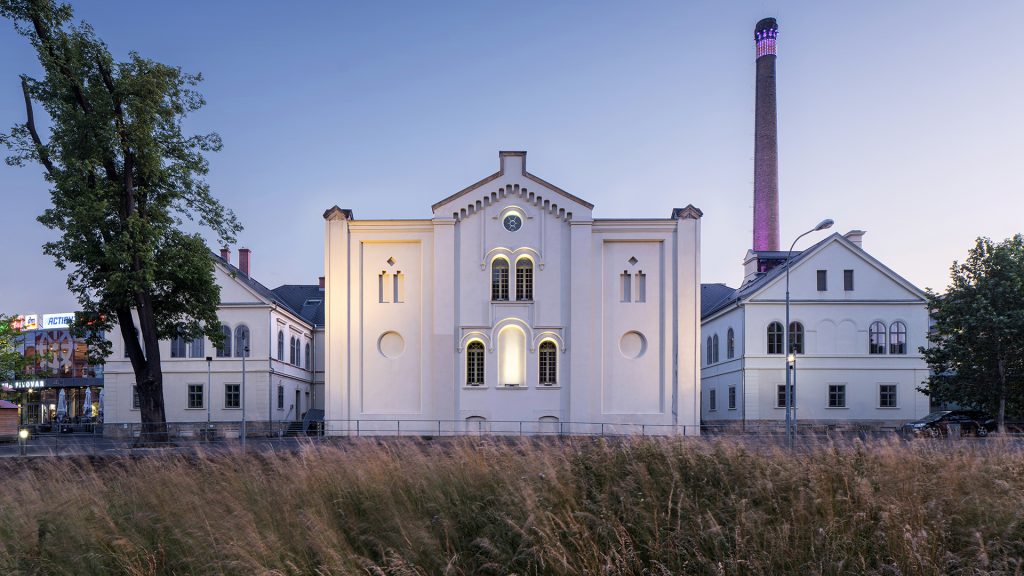
Centrum pivovar - Děčín
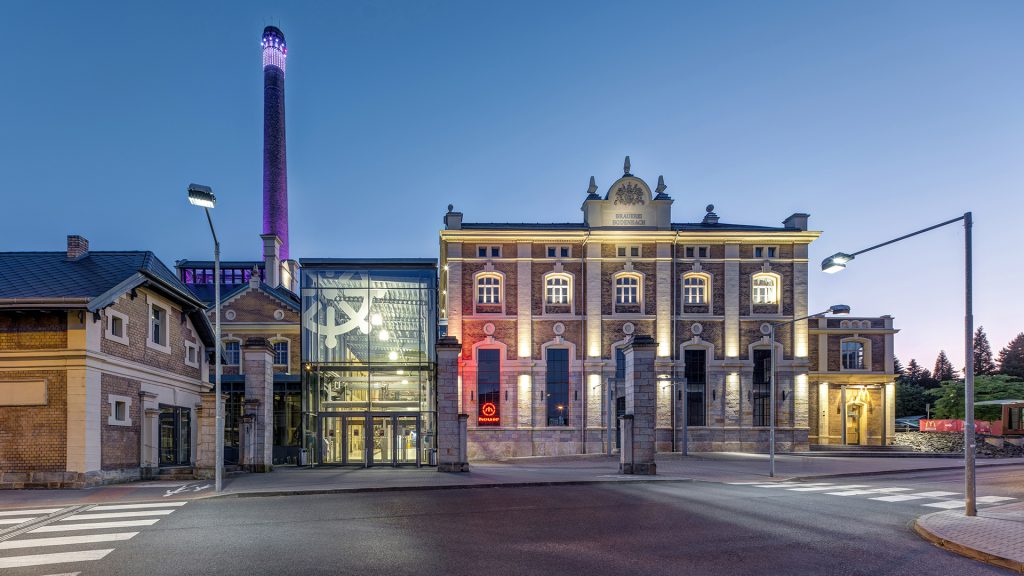
Pradiareň 1900 - Bratislava

Pradiareň 1900 - Bratislava

Other group investments are channelled towards the construction of logistics and industrial areas. Presently, it is revitalizing a brownfield in the area of the former Poldi Kladno. Being an active participant of property development projects, RSJ Investments together with its partners pays attention to energy efficiency and economical and social added value for the given region. The other pillar of RSJ Investments is represented by investments into key sectors of the future. The capital flows to companies in promising fields, such as health or IT. It also supports funds focusing on technology startups and invests in land and agriculture. An integral part of RSJ Investments’ activities is its support of socially useful projects. In the field of art, it partners several cultural projects, such as Smetana’s Litomyšl or the MenART Scholarship Academy supporting young talents. Through RSJ Foundation, it supports talented children, mental health of children and youth, education, and development of philanthropy.
Contact
Investor:main visualization:
muoto + peer, visualization by Olivier Campagne, photography by Václav Novák
visualization of the passage:
muoto + peer, visualization: willbe studio, photography: Václav Novák